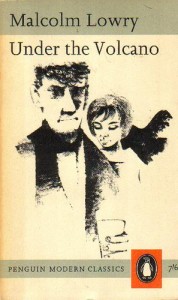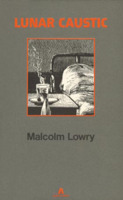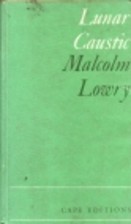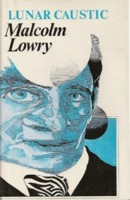Archives
Archive for December, 2013
December 17, 2013
Avant Canada conference and bpNichol symposium
Call for Papers
The 28th Annual Two Days of Canada Conference
in partnership with EMiC
followed by a special one-day symposium on bpNichol’s life and works
Avant Canada
Artists, Prophets, Revolutionaries
5-7 November 2014
Since the 1920s, when Canadian avant-gardist Bertram Brooker announced art’s imminent triumph over business, the discourse of avant-gardism in Canada has frequently combined revolution, aesthetics, and ecstatic projections of the future. The 28th annual “Two Days of Canada” conference at Brock University, the oldest Canadian Studies conference of its kind in Canada, invites scholars and graduate students in all disciplines who research any aspect of the humanities or social sciences in the Canadian context to a conference centred broadly on the idea of what lies ahead for Canada and the arts in Canada.
This conference represents an opportunity to reflect on the state of the future in Canada as well as the role that forward thinking artists, philosophers, and revolutionaries have played and might yet play in shaping what lies ahead. Many possible topics comprise the broad theme of this conference, such as:
• dissent, disruption, and revolution: from early rights-based activisms to contemporary movements like Idle No More and Occupy
• future gardes in Canada and the future of the modernist avant-garde
• editing, publishing, and archiving the avant-garde
• teaching, mentoring, and inventing the avant-garde
• politics, political agency (especially including decolonization), and the arts
• equity, inclusiveness, and ideas/models of community
• movements, networks, nodes, and manifestations
• the impact of digital methodologies
• race, gender, and class in avant-garde production, dissemination, and recognition
• border crossing, transnationalism, and globalization
• futurist representations and the mediated future
• the theory of avant-gardism and modernism in Canada vis-à-vis international models
• the history, historiography, and boundaries of Canadian avant-gardism
Proposals for individual papers, presentations, or panels from all disciplines, covering any aspect of Canada’s future or the role of the avant-garde in Canada, are welcomed. Papers intended for the bpNichol symposium should be marked as such (see below). Abstracts should be no longer than 250 words and may be sent to Gregory Betts, Department of English Language & Literature (gbetts@brocku.ca) before 3 March 2014. Please attach a 50 word biography to your submission. Hardcopy proposals should be sent to: Professor Gregory Betts, c/o The Department of English Language & Literature, Brock University, 573 Glenridge Ave. St. Catharines, ON., L2S 3A1
At the corner of mundane and sacred: A bpNichol Symposium
Friday 7 November 2014
9am–9pm
This collaborative symposium of scholars, writers, visual artists, musicians, and those interested and invested represents a cogent network of energies focused on the award-winning work of Canadian poet bpNichol (1944-1988). Nichol was a singular literary figure, with substantial influence on small press and experimental writing communities in Canada, the United States, and beyond. He has been the subject of countless books and essays by writers in both countries, and is the subject of a current outpouring of academic interest that has given rise to the republication of many of his books.
This one-day symposium on Nichol’s life and works will be held at the Niagara Artists Centre in downtown St. Catharines, in collaboration with Brock University’s Centre for Canadian Studies and the Editing Modernism in Canada Project. It will include plenary speakers, roundtable discussions, special topics panels, workshops on avant-garde pedagogies and production, a poetry reading, and a Fraggle Rock-themed dance party. Papers exploring any aspect of Nichol’s production or the scholarship on Nichol are welcome.
Proposals for individual papers, presentations, or panels are encouraged. Abstracts should be no longer than 250 words and may be sent to Gregory Betts, Department of English Language & Literature (gbetts@brocku.ca) before 3 March 2014. Please attach a 50-word biography to your submission. Hardcopy proposals should be sent to: Professor Gregory Betts, c/o The Department of English Language & Literature, Brock University, 573 Glenridge Ave. St. Catharines, ON., L2S3A1
December 13, 2013
Vik Doyen Shares his Journey to Genetic Criticism
(Post written by Vik Doyen)
Why does anyone start compiling a genetic critical edition of Swinging the Maelstrom?
The process behind this edition goes all the way back to the academic year 1970-71 when I was doing research on the Lowry manuscripts in the Special Collections Division of the University of British Columbia in Vancouver.
During my formation as an English major in Belgium I had been trained to focus on the final text of any literary work. My MA thesis on Under the Volcano was a typical example of this close-reading technique, in the tradition of New Criticism. My Ph.D. proposal — to apply the same technique to the rest of Lowry’s literary work — confronted me with a methodological problem: what about the posthumously published books? Could they be analysed in the same way as works that carry the seal of authorial approval?
The introduction to Hear Us O Lord From Heaven Thy Dwelling Place tells the reader that Lowry kept working on the stories during his final years in England and that the published text “contains Lowry’s final revisions, incorporated in the manuscript after his death by his widow, Margerie Bonner Lowry.”
For Lunar Caustic the situation seemed even more complicated. Conrad Knickerbocker’s Introduction to the Cape edition of the novella (London, 1968) is based on Margerie’s information:
“In England during his last years, Lowry had decided to do another draft of Lunar Caustic […]. At the time of his death he had reassembled and mixed the two drafts in the working method he always used. He often had five, ten or even twenty versions of a sentence, paragraph or chapter going at once. From these, he selected the best, blending, annealing and reworking again and again to obtain the highly charged, multi-levelled style that characterizes his best writing.”
Most reviews and critical studies of these posthumous publications treated them as if they represented Lowry’s finished texts. But for me, as a strong believer in authorial approval, there was no other solution than to have a close look at the Lowry manuscripts in Vancouver. My investigation of Lowry’s correspondence and the various drafts of his finished and unfinished works revealed that Margerie’s story about Lowry’s creativity during his final years in England was a fanciful reversal of the sad truth that, after two aversion treatments to overcome his lifelong alcoholism, the only manuscript he had touched in England was that of his unfinished novel October Ferry to Gabriola.
That confronted me with a double problem. First of all, I had to inform my Ph.D. adviser in Belgium about my conversion from a close reader of final texts to a genetic critic of unfinished projects. The second problem was that I needed Margerie ’s formal permission to quote from the unpublished materials. After my visit to her in Los Angeles in the summer of 1970 I received a written permission from her to quote in my doctoral dissertation “whatever you want”. But would that permission still hold for subsequent publications if my dissertation proved to be critical of her posthumous editions of Lowry’s work? When I asked her, during that visit, about Douglas Day’s long overdue biography of Malcolm Lowry, she firmly stated that there would be no Day biography of Malcolm Lowry. Perhaps Lowry’s official biographer had fallen out of grace after stating in his preface to Dark as the Grave that the stories of Hear Us O Lord were “collected (and in some instances completed) by Mrs. Lowry in the years after her husband’s death.”
In my doctoral dissertation, completed in 1973, I used a positive approach. Instead of focussing on what went wrong with the posthumous publications, I reconstructed the data of Lowry’s life from his own extensive correspondence and traced the gradual development of each story and novel from its earliest notebook entry to its latest available draft. That approach allowed me to deal with the posthumous publications as a kind of “Postscript”.
Because of academic and administrative responsibilities in the newly established American Studies Program of my university a new visit to the Lowry Collection in Vancouver had to wait until the Fall of 1984. I took advantage of that occasion to return to LA to discuss my research with Margerie Lowry, but her mental condition had made it impossible for her to deal with copyright matters. Via Betty Moss, a very helpful Lowry scholar and a confidant of Margerie’s, I received a recommendation from Margerie’s sister Priscilla to obtain copyright permission from Peter Matson, Lowry’s literary agent. That was a first step on the way towards a critical text edition.
A joint course with Chris Ackerley at UBC in 1987 led to the first idea of combining a critical edition of Swinging the Maelstrom with a set of annotations (vaguely comparable to Ackerley’s A Companion to Under the Volcano). By the time of the Lowry Symposium in Toronto in 1997 I had digitized the three versions of the novella and the editorial work could start. Chris completed a first draft of his Annotations by the late ’90s and followed it up with a number of revisions and additions.
The problem, however, was to find an academic publisher for this scholarly edition. That opportunity emerged after the 2009 Lowry Conference in Vancouver, when Paul Tiessen and Miguel Mota were able to get support from EMiC (Editing Modernism in Canada) for a three-volume Lowry project that would bring out critical editions of three unpublished works: Swinging the Maelstrom, In Ballast to the White Sea (edited by Patrick McCarthy) and The 1940 Under the Volcano (edited by Paul Tiessen and Miguel Mota). All three of them would be annotated by Chris Ackerley. And University of Ottawa Press would take care of the publication.
In his annotations Chris had repeatedly referred to the previous versions of Swinging the Maelstrom. The EMiC support made it possible to include in this scholarly edition not only the final version of the novella, but also the previous ones. This in turn allowed Miguel and myself in the Introduction to put special focus on the genesis of the novella. Paul and Pat situated this edition in the general context of Lowry’s work and, together with Chris, offered detailed critical comments. Miguel took care of all the contacts with EMiC and the Press and closely supervised each stage of the process.
Working together with this enthusiastic team was an enormous stimulus to do the fine-tuning of the manuscript and lead it through its final proofs. Many thanks to all of them.



